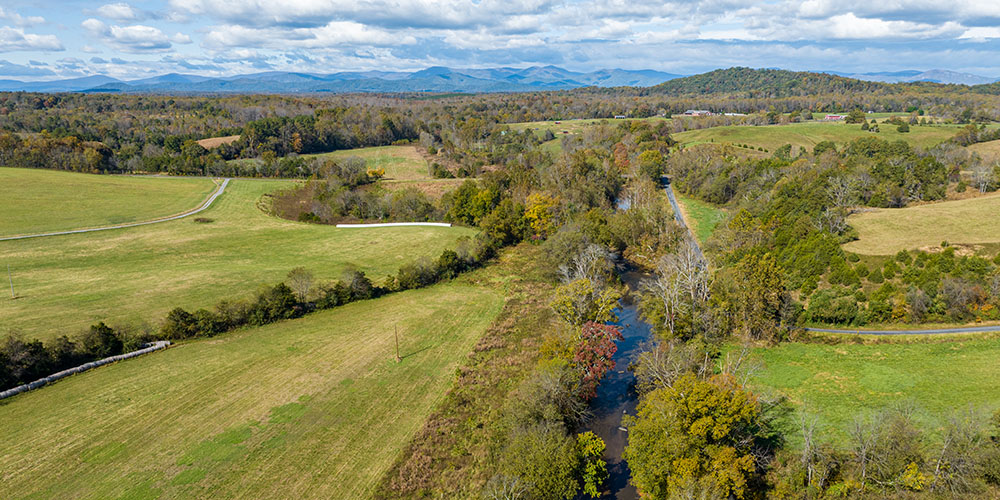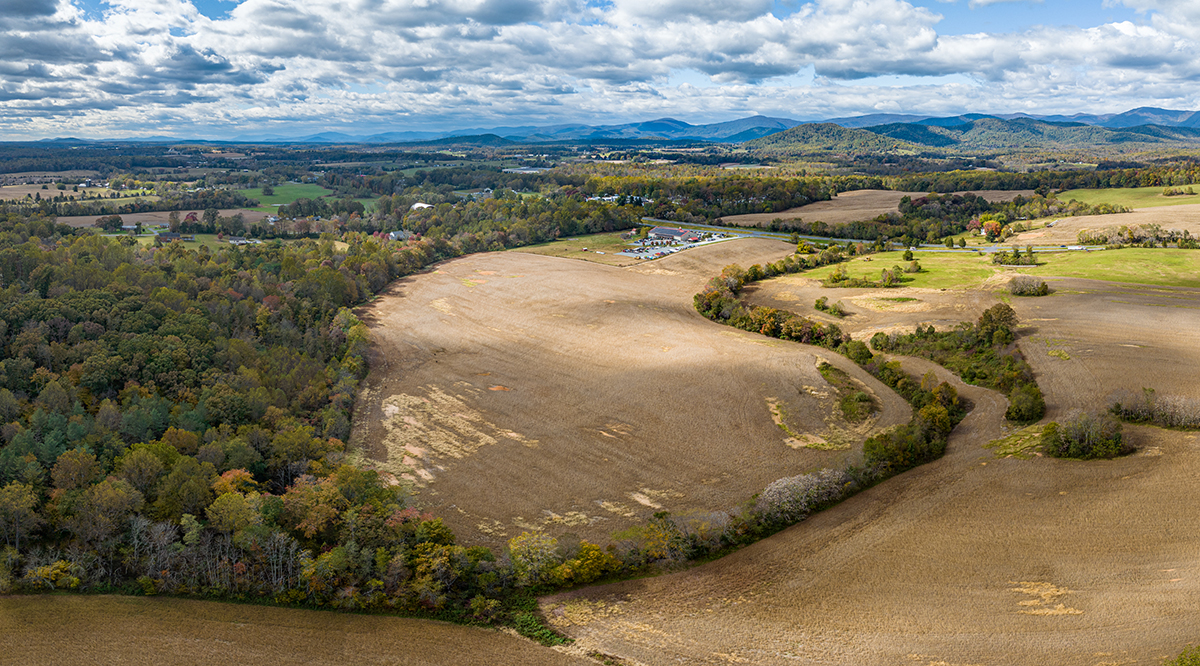The following email alert was sent out on June 13, 2023. To sign up for PEC emails visit pecva.org/signup.

Photo by Hugh Kenny / PEC
Dear Supporter,
2023 has already been a busy year for the Madison County Planning Commission and Board of Supervisors, and I am writing to share some recent highlights with you.
Comprehensive plan review ongoing
A committee of residents and representatives from the Planning Commission and Board of Supervisors has been meeting since November to review Madison County’s Comprehensive Plan.
Under Virginia law, all counties must adopt a Comprehensive Plan and regularly update it on a five-year cycle, and Madison’s Comprehensive Plan was last updated in 2018.
Discussion topics so far have included the vision statement, and the Community Demographics and Housing chapters. Committee meetings are expected to continue through this summer and will focus on the Land Use, Environment, and Community Design; Recreation and Community Facilities; Economic Development; and Transportation and Mobility chapters. The committee will hold one or more public events in the fall to share a draft with residents and to receive input. A final draft will be presented to the Planning Commission and Board of Supervisors in October or November for adoption.
The Comprehensive Plan is a critically important document that represents Madison County’s vision for the future and guides decisions and regulations around growth and development for the next 5–20 years. We hope that as new land use proposals come before the County, the updated Comprehensive Plan will help steer future economic growth and residential development to Madison County’s existing developed areas where that investment can improve infrastructure and quality of life while also preserving the County’s rural land, agricultural economy, and scenic beauty.
As a Madison County resident, you have the opportunity to weigh in on this important guiding document. We hope you will speak up for conservation values and urge the County to approach development in a way that complements existing services and infrastructure, enhances a connected and liveable Town of Madison, and protects natural resources, open space and working farmlands.
PEC will stay engaged with the Comprehensive Plan committee and let you know as soon as the public input phase is scheduled.
Glamping proposal redux
The developer who proposed a glamping resort on Fords Shop Road along the Robinson River, denied by the Board of Supervisors in late 2022, has received approval for a similar, but larger, project on a property near Prince Michel Winery on U.S. Route 29.
After the first proposal was found to be inconsistent with the County’s zoning ordinance, “tend[ing] to change the character and established pattern of development of the area,” the developer came back to the County with a 120-unit proposal on 190 acres in a much better location within the County’s designated U.S. Route 29 business corridor. The preliminary plan calls for the structures to be at least 300 feet from any neighbor, with a 60-foot vegetated buffer around the entire site. The developer has also stated the intent to locate all structures among existing trees as much as possible, minimizing the number to be removed from the mostly forested parcel. PEC reviewed the proposal and made a number of recommendations.
The Board of Supervisors has also approved two small-scale, short-term rental projects so far in 2023. One would consist of three, three-bedroom units, and three, one-bedroom units. This project is on two adjacent parcels (100 and 157 acres, respectively) on Graves Mill Road. The second project will consist of three, two-bedroom units on a 10.7-acre parcel. PEC did not submit comments on these proposals.
Utility-scale solar proposal next to Yoder’s Country Market – South Seminole

Credit Hugh Kenny/PEC
A twice-proposed, twice-delayed utility-scale solar facility for 90+ acres behind and adjacent to Yoder’s Country Market on U.S. Route 29, was back before County decision-makers in April and was headed for a public hearing in May. However, the Planning Commission (at its work session on April 19) found several pieces of information still missing from the application and rescheduled the public hearing for July 5, with another work session ahead of that on June 21.
One question that remains unanswered is how the facility would connect to Rappahannock Electric Cooperative’s (REC) Pratts substation near the intersection of Va. Routes 230 and 231. It is still unclear whether the project would require new transmission lines and poles, and where that infrastructure would be located. The owner of Yoder’s Country Market told the Planning Commission that while he is not opposed to solar, he does not want overhead power lines running along U.S. Route 29 in front of the market. Some other neighbors have organized in opposition to the project. The Planning Commission is also waiting on an economic cost/benefit analysis, a viewshed analysis, and a decommissioning plan with surety bond.
PEC would be concerned about new transmission lines if the project requires such. The site also contains prime agricultural soils, which we have raised concerns about previously. PEC supports renewable energy, and while we continue to advocate for a greater share of renewables within the built environment, we recognize the need for well-designed and -sited utility-scale solar that avoids, and mitigates where appropriate, impacts to our most sensitive cultural and natural resources. Through that lens, we will continue to review the South Seminole proposal as more details become available between now and the public hearing in July.
Criglersville School redevelopment proposal
Constructed in 1946-1948, Criglersville Elementary School was a hub of activity in the village for over 50 years. The school closed in the early 2000s, and came close to being demolished by the County in 2020 after a decades-long search for a buyer failed. You may recall that last year, a Richmond developer offered to purchase, renovate and repurpose the school as a boutique hotel and wedding venue.
PEC was pleased to see an attempt to renovate and reuse the historic school building, but had a number of questions around water availability/usage, noise, and guest capacity with regard to potential negative impacts on the village of Criglersville. Ultimately, community concerns over noise, traffic, and water/sewer, among other issues, led the Board of Supervisors to deny the request to rezone the property, and the Board announced that it would take up other proposals for the school property in early 2023, including one that had already been submitted from a community group interested in purchasing the building and turning it into a community center.
In January, the Board declined to execute the Richmond developer’s contract to purchase the property. The developer then sued to either force the sale or secure compensation. The lawsuit is still pending. A hearing on the County’s motion to dismiss the case is scheduled for July. It is unclear what the developer would do with the property if the lawsuit is successful, as it would have to be rezoned in order to operate a hotel.
Board of Supervisors does away with open-space tax valuation
As allowed by state law, Madison County is one of 75 Virginia counties that offers a program of special tax assessments for land kept in agriculture, horticulture, forestry, and/or open-space. Land in this program is taxed on the value of the land as restricted to one of those four uses (“use-value”), rather than on the land’s market value (were it to be developed). Counties can choose to offer such special assessments for any or all of the four uses.
Unfortunately, in December the Board of Supervisors eliminated the open-space use from its land-use tax valuation program. PEC urged the County to retain the open-space option, as we believe it can be an important conservation tool that complements the other three uses and furthers the County’s Comprehensive Plan — “to preserve, protect, and enhance the natural beauty, rural character, and air and water quality” — by removing some of the financial pressure on property owners to sell and develop land that may not have other viable economic options. While the agricultural, horticultural, and forestry uses involve real estate used for some commercial value, the open-space use exists as a means of preserving the natural resources, wildlife habitat, beauty and character of the rural portions of the County. Madison County still offers the agricultural, horticultural and forestry use options.
Thank you for your interest in PEC’s land use work in Madison County. If you would like to learn more, or if you have any questions or concerns, I would love to hear from you!
Sincerely,
Don McCown
Madison County Field Representative
[email protected]
(434) 977-2033 ext. 7047

